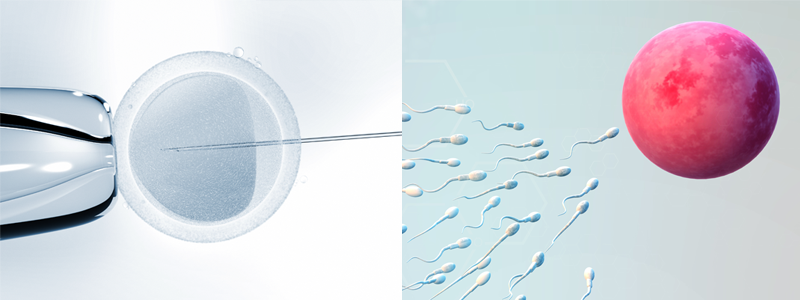Secondary infertility can be an extremely difficult experience for anyone. Whether you’ve just received a formal diagnosis or are in the process of navigating early troubles associated with getting pregnant again, we’ve put together this guide to answer any burning questions you might have about secondary infertility.
What is secondary infertility and how common is it?
As opposed to primary infertility, which sees couples unable to carry a baby to term after successfully conceiving previously. Even if you've successfully conceived before, it is possible to run into difficulty getting pregnant for the second time round.
Secondary infertility is an issue affecting approximately 5% of the population, and can be an issue that catches people off guard. Many parents and couples may have an image of their ‘ideal family’ in their mind before embarking on their parenting journey, so when faced with the possibility of this not happening, it can be shattering for them.
What are the causes of secondary infertility?
Secondary infertility shares many of the same causes of primary infertility, and both male and female factors play an equal role. In men, this typically means problems with sperm count, low sperm quality and/or blockages that prevent the delivery of sperm. In women it can be down to a range of conditions such as endometriosis or fibroids that affect their reproductive organs, or polycystic ovary syndrome (PCOS) which can affect regular ovulation. It could also be down to damaged or blocked fallopian tubes.
In both men and women, age plays a significant role. Female fertility peaks at age 25 and drops after the age of 35. Men, like women, also have a biological clock which means that their fertility can decline from the age of 40.
As well as this, excessive weight gain or weight loss can affect fertility, causing hormone imbalance, contributing to irregular periods and ovulation difficulties. Weight problems can also affect fertility in men.
One cause of secondary infertility that distinguishes it from primary infertility is the potential complications of previous pregnancies or deliveries, for example in the case of a caesarean section.
What to do if you are struggling to get pregnant with a second child
If you have been trying to conceive regularly for over a year, and haven't had any success, you should seek advice from your doctor. Women aged 36 and over, and anyone who's already aware that they have fertility problems, should see their GP sooner, usually after about six months.
Your GP will ask you if you’ve experienced irregular menstrual cycles and will want to find out if you’re ovulating and what your egg reserve is. For men, a medical history will show if thyroid disease, cancer or age-related conditions might have affected sperm count or quality. If you are on any medication please check with your GP that your medication is safe to continue when you are trying for a baby.
Once you and your doctor have test results, you can talk about next steps, which tend to be the same as treatments for primary infertility.
What are the treatment options for secondary infertility?
The treatment options available for primary and secondary infertility are largely the same. In the case of secondary infertility, however, initial treatment may be more mild, due to previous success in becoming pregnant. This could range from addressing lifestyle factors to ovulation induction.
For both primary and secondary infertility, treatment could involve minor surgery, such as removal of a fibroid or polyp in the uterus or addressing medical or surgical causes of male infertility, or in the form of assisted conception, including intrauterine insemination (IUI) and in vitro fertilisation (IVF). The introduction of counselling can also be helpful.
From here you may be referred to a fertility clinic, where we can guide you through the possible treatments available, including IUI and IVF.
If you are currently trying to conceive after having a child and are worried about any aspect of your fertility, consider arranging an scan & virtual consultation with our specialist team. We can assess several aspects of fertility, including your egg reserve and the health of your uterus, fallopian tubes, ovaries and follicles.






